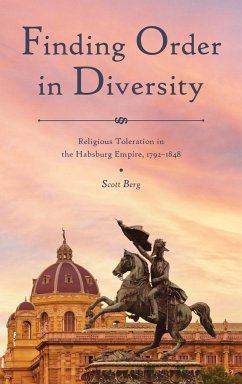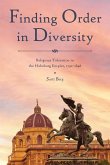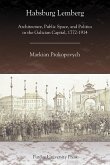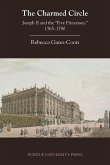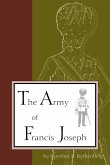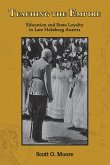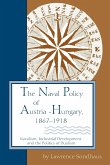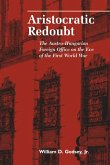Finding Order in Diversity: Religious Toleration in the Habsburg Empire, 1792-1848 covers the tumultuous period in the Habsburg Empire from Joseph II's failed reforms through the Revolutions of 1848, documenting the ongoing struggle between religious activism and civil peace. In the name of stability, the Habsburg Empire sidelined Catholic activists and promoted religious toleration during this era in which Austria was an international symbol of conservatism and other states engaged in strident confessional politics. Austria's well-known fear of disorder and revolution in this notoriously conservative regime extended to Catholics, and the state utilized the censors and police to institutionalize religious toleration, which it viewed as essential to law and order, and to tame religious passions, which officials feared could mobilize public opinion in unpredictable directions. The state's growing use of police power had wide-reaching consequences for refugees, women, and empire-building. By the end of the nineteenth century, the Habsburg Empire would become known as a multinational and multicultural state, but this toleration was the product of the infamously conservative and rigid regime that ruled Austria in the decades after the French Revolution and until the Revolutions of 1848. While the Habsburgs typically are associated with Catholicism, 1780 to 1848 marked the only era in which the Habsburgs tried to disassociate themselves politically from Catholicism. Though civil peace and religious toleration eventually became the norm, this book documents the decades of heavy-handed state efforts to get there.
Hinweis: Dieser Artikel kann nur an eine deutsche Lieferadresse ausgeliefert werden.
Hinweis: Dieser Artikel kann nur an eine deutsche Lieferadresse ausgeliefert werden.

